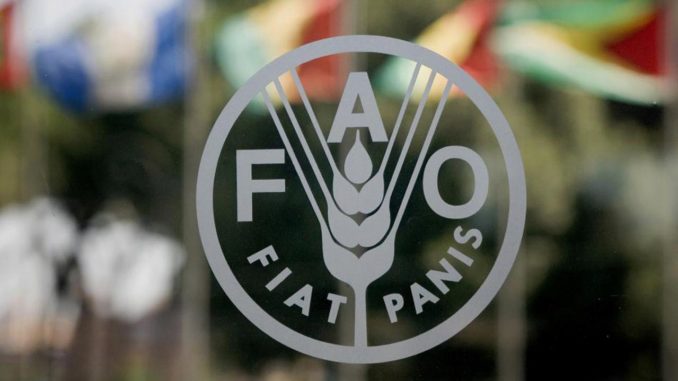
The United Nations Food and Agriculture Organization (FAO) in collaboration with World Food Programme (WFP) have flagged off livelihoods support programme to people affected by insurgency with seeds and fertilizer in the Northeast.
The UN food agencies’ support was to reduce dependence of Internally Displaced Persons (IDPs) from the region on government food assistance.The FAO and WFP representatives in Nigeria, Suffyan Koroma and Myrta Kaulard disclosed this on Thursday in a statement release in Maiduguri, the Borno State.
According to Koroma, the launching and distribution of bags of seeds and fertilizers to displaced farmers was to increase food production and reduce food assistance dependency.
“Using a ‘twin track’ approach, FAO is providing enough seeds and fertilizers to produce up to eight months’ worth of food during this 0year’s rainy season,” he said.Kaulard, added that WFP would cover the food requirements of IDP households, before their crucial harvests in September.He said this was in addition to WFP’s life-saving support to 67,000 IDPs in Rann, a border community with Cameroon.
On IDPs livelihoods, Koroma said: “The FAO provided seeds and fertilizers to 16,000 households in Rann, who have safe access to land and cultivate for harvests.“They have also, through a community-based assessment, proved capable of growing their food. This includes families who have sought refuge in Rann as well as the host population.”
Fanna Kachella, an IDP from Rann, with eight children said that they are keen to resume farming with her husband.“Not having anything much to do has been hard for us, we are used to planting our own food. I hope we will get a good harvest from the seed,” she said.
According to Koroma, farmers in Rann and 30 other communities can plant maize, sorghum, millet, sesame, groundnuts, sweet pepper, watermelon and cowpeas following the distributions of farm inputs.He said in addition to distributing inputs like seed, the agencies are expanding their farmer field school, plus savings and loans programmes in the region.
Families in northeast Nigeria have been affected by conflict for years, and many have gone through terrible times, therefore we need to work harder and together to put people back on the track, to rebuild their livelihoods and to restore their dignity.”
END

Be the first to comment